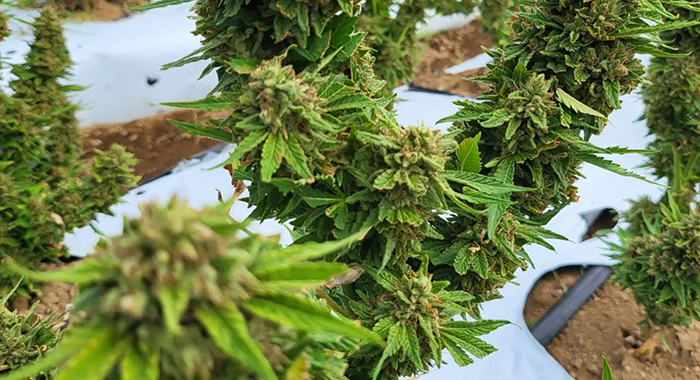The Caribbean Fairtrade Cannabis Group (CFCG) says while the shift from prohibition to decriminalization and the creation of a legal “medicinal” cannabis industry in the Caribbean is appreciated, “there remains serious concerns regarding the token inclusion of traditional/legacy cannabis farmers, grassroots people, and community participants in the legal and regulatory framework”.
The group said it is pleased to see the evolving of the medicinal cannabis industry across the region, with countries such as Jamaica, Antigua and Barbuda, St. Vincent and the Grenadines, St. Lucia, and Barbados each instituting a medicinal cannabis policy framework.
“One of the major concerns is the absence of any deliberate attempt to mitigate the imposed costs of entry into the formal medicinal cannabis industry,” CFCG said in a statement to coincide with 420 Day, April 20, also known as 4:20 or 4/20, a day an unofficial holiday dedicated to celebrating and smoking marijuana.
CFCG said that while CARICOM member states such as Antigua and Barbuda, and SVG have written legislation and regulations that include traditional/legacy cannabis farmers, the state of progress for these growers has been “painstakingly slow”.
It said that in Antigua and Barbuda, the Rastafari community endeavours to develop within the cannabis space provided to them in the licensing regime and continuously seek to improve on the relationship with the Antigua and Barbuda Medicinal Authority.
Meanwhile, in SVG, the granting of lands to traditional/legacy farmers and other farmers is welcomed.
“This positive initiative of the Government does require urgent steps for coordinated plans to have farmers start growing cannabis to supply the ever-growing medicinal cannabis market in that country and the Organisation of Eastern Caribbean States (OECS),” the group said.
It said that in the case of Jamaica, “it is distressing that real efforts for inclusion of traditional/legacy cannabis growers are still to be manifested,” adding that the recent announcement by Minister Aubyn Hill, to suspend fees for small traditional farmers for two years while welcomed needs to be accompanied by other regulated reforms and more meaningful support for traditional/legacy cannabis participants.
“This announcement by the minister needs to be codified for certainty and sustainability. The Alternative Development Pilot Programme which was developed from 2017 for the traditional cannabis farmers is yet to be fully rolled out,” the CFCG statement said.
It said a pilot was intended to provide informed guidance for a holistic programme that would incorporate traditional ganja farmers across Jamaica.
“Indeed, achieving such goal would provide for real inclusion of the traditional ganja growers in Jamaica. Additionally, the CFCG is calling for more industry support for traditional/legacy cannabis farmers to tackle issues such as regulatory barriers and access to land.”
In St. Lucia and Barbados the traditional/legacy cannabis growers continue to appeal to the policymakers to ensure that the cannabis regulations and framework being developed are inclusive, and that the framework will support the sustainable livelihood of the farmers, and their communities, CFCG said.
“The CFCG is therefore calling on the regional leaders of CARICOM to place the sustainable development of a legal cannabis industry, that is built on the inclusion of the traditional/legacy cannabis farmers and community participants, high on CARICOM’s agenda,” the statement said.
“Accordingly, the CFCG is proposing that a cannabis sustainable development initiative be placed before a pertinent committee of CARICOM. Such a committee to include representatives from the traditional/legacy cannabis community. The CFCG is further calling for a regional driven cannabis policy framework which has at the heart the socio-cultural, social justice and indigenous rights of the Caribbean people. The CFCG is further recommending that the OECS also buy in to these recommendations.”






